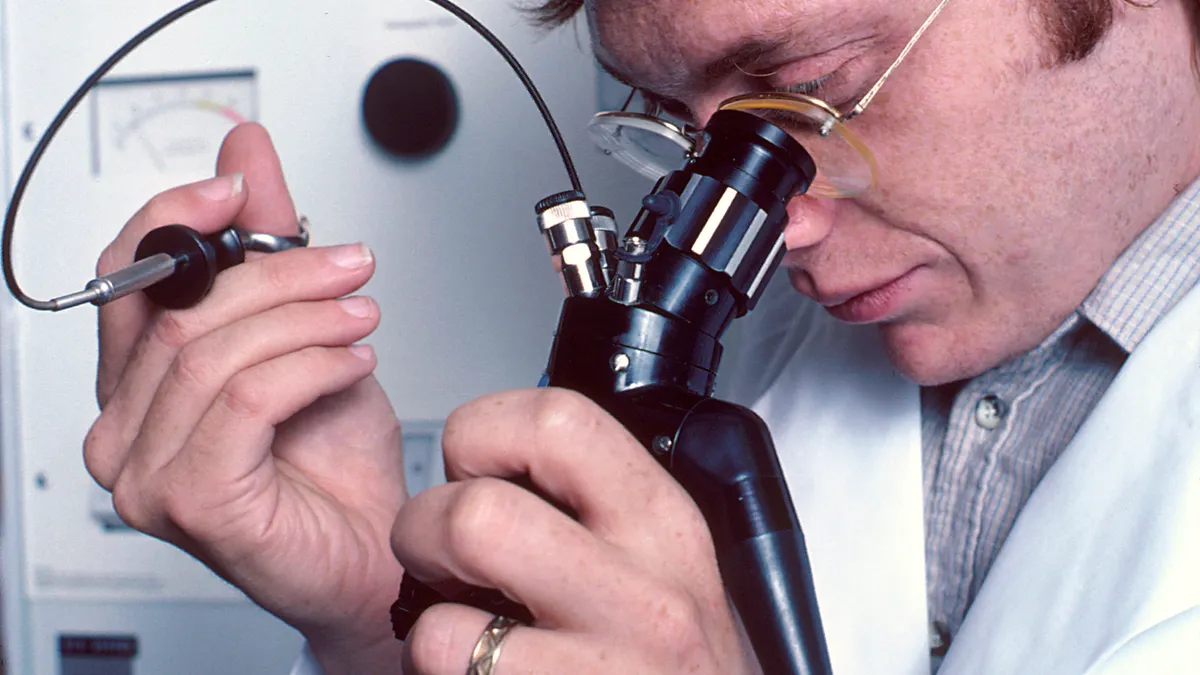Dive Brief:
- Following an April 2018 alert warning of cross-contamination risks to patients from reusable endoscope connectors lacking a backflow prevention mechanism, FDA has now cleared a modified design that aligns with a device from Erbe USA with agency guidance.
- Erbe was the only manufacturer marketing an endoscope connector for multi-patient use that did not have a feature to prevent patient fluids from flowing backward and contaminating the irrigation system, the agency said.
- FDA cleared the modified Erbeflo 24-hour port connector based on a review of functional and simulated use testing of the design.
Dive Insight:
Endoscope connectors have not garnered the level of attention paid to duodenoscopes as a source of potential patient infection, but they have been on FDA's radar. The devices connect the auxiliary water channel of a gastrointestinal endoscope to a water source and irrigation tubing.
In a 2016 guidance document, FDA flagged a cross-contamination risk for connectors in irrigation systems used with flexible gastrointestinal endoscopes. FDA said it had received reports of patient fluids traveling backward into the system's tubing and water bottle.
The same water bottle is often used for multiple patients without reprocessing between procedures, raising infection risk during a colonoscopy or upper gastrointestinal endoscopic procedure, FDA said. The agency advised reprocessing or discarding all components after a procedure if a system did not have a backflow prevention mechanism.
In April 2018, FDA warned healthcare providers not to use Erbe's 24-hour multi-patient endoscope connectors due to the lack of backflow prevention. Instead, the agency recommended single-use endoscope connectors or reusable connectors that are reprocessed prior to each patient procedure.
The modified Erbeflo port connector adds the backflow prevention feature. The product's revised labeling specifies the connector should be used only with Erbe irrigation tubing. The label also contains new warnings to help ensure correct use of the device.
While progress has been made to improve the safety of endoscope connectors, FDA last month raised new concerns about contaminated duodenoscopes, citing new reports of three patient deaths and 45 infections between October 2018 and March 2019.
The agency issued warning letters in March 2018 to manufacturers Olympus, Fujifilm and Pentax for failing to meet timelines for completing post-market studies ordered in 2015 to determine how the devices were becoming contaminated. FDA warned the companies it will take additional action if they fail to adequately respond to the agency's concerns.
A duodenoscope is a type of endoscope used in procedures of the bile duct and pancreas. The scopes are difficult to clean because they contain many small working parts. FDA wants to see evidence that proper reprocessing can eliminate bacteria residue.
Earlier this month, Senate Health, Education, Labor and Pensions Committee Ranking Member Patty Murray, D-Wash., called on the duodenoscope manufacturers to explain how they plan to respond to FDA data showing what she called "alarmingly high rates of contamination."
Olympus and Fujifilm told MedTech Dive at the time that they are committed to working with FDA and lawmakers to ensure duodenoscope safety. Pentax said it intended to respond to Murray's letter.










